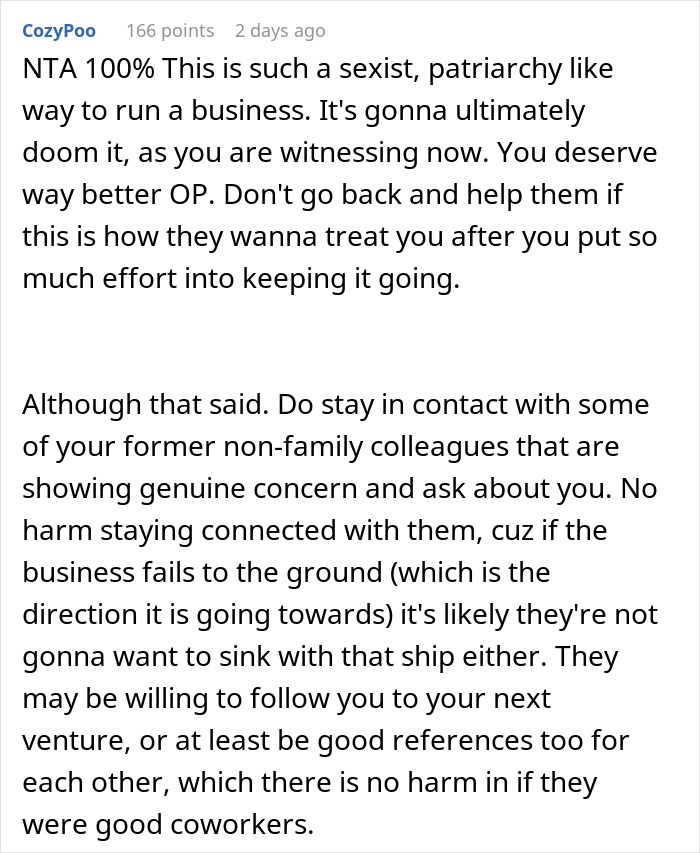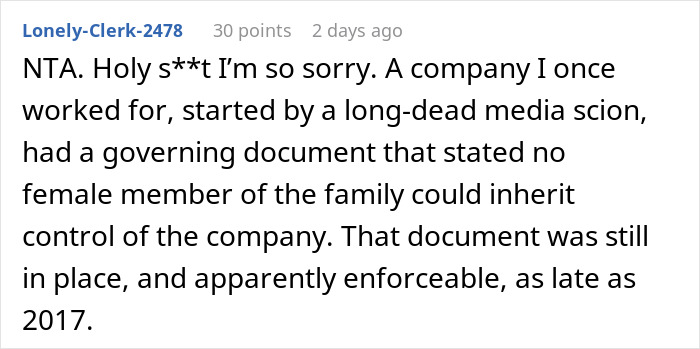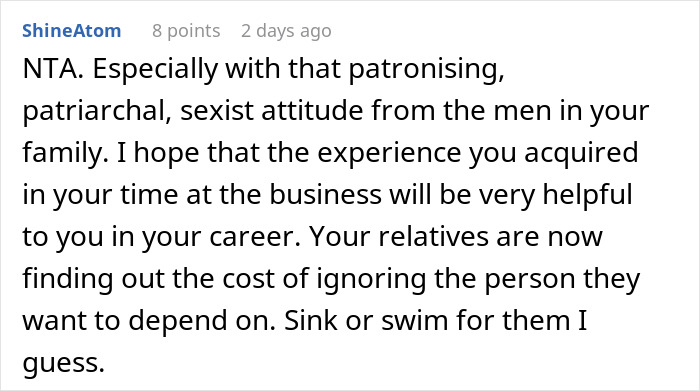Recognition comes in many forms. One of which is being trusted with responsibility. And after supposedly spending years in her grandpa’s company, Reddit user ScallionTop7000 wanted it more than anything.
However, when the man passed away, his will revealed it wasn’t going to happen. While her male relatives were assigned important roles and shares of the business, the woman was excluded from any significant involvement, receiving neither a leadership position nor a stake in the venture. As she claimed online, all because of her gender.
This woman said she dedicated long years of her life to her grandfather’s business

Image credits: Wavebreakmedia/Envato (not the actual photo)
But she just realized there was no future for her there






Image credits: YuriArcursPeopleimages/Envato (not the actual photo)



Image credits: ScallionTop7000
This story is indicative of the broader picture
The Western world is moving forward. In 1999, only three large public companies in the US were headed by women; ten years later that number increased to 15.
In 2023, women held 10.4% of leadership positions at Fortune 500 companies. (There were a total of 52 women running businesses on the Fortune 500 list, an all-time high.)
But at that time, women represented around 58% of the US workforce and only held 35% of senior leadership positions.

Image credits: EkaterinaPereslavtseva/Envato (not the actual photo)
In 2023, a majority of Americans (55%) said were too few women in top executive business positions. Americans see many factors as to why this is, such as:
- Women having to do more to prove themselves than men (58% say this is a major reason);
- Gender discrimination (50%);
- Family responsibilities (48%);
- Many businesses not being ready to hire women for these positions (43%);
- Sexual harassment creating an environment that makes it harder for women to succeed (40%).
And people aren’t very optimistic about the future, either. Half believe that even as more women move into management roles, men will continue to hold more of these top positions.
While you might agree or disagree about the elements contributing to this disparity, one thing is clear: sadly, merit alone is not always enough to break through corporate or, in this case, even familial barriers.
As the story went viral, its author provided more information on everything in the comments



People expressed their support for the woman






























